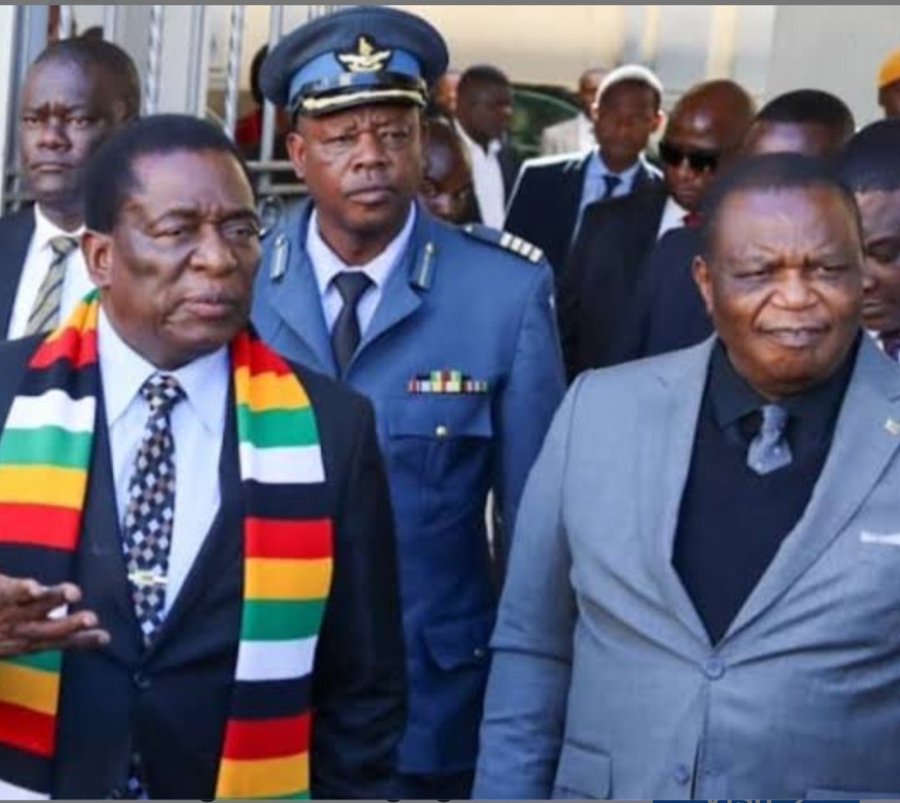TSHABANGU’S RISE TO POWER: A STORY OF HYPOCRISY

In Zimbabwe’s politics, hypocrisy often hides behind the scenes. One person who has shown this dark side is Sengezo Tshabangu. He is now a controversial figure in politics, and his rise to power looks like a plan full of lies and tricks. Tshabangu did not become a leader by following the normal way of democracy. Instead, he used deceit and falsehoods to become a senator. His story is like something from a drama full of political games and dirty tricks.
Tshabangu’s rise is very complicated, and it is full of moves that would make even a skilled politician pause. He managed to remove real elected officials from their positions. He got rid of Members of Parliament, senators, councillors, and even mayors. All of these officials were chosen by the people, but Tshabangu wanted to replace them with his own allies. These people had been rejected by the voters before, but Tshabangu found a way to get them into power. This was not just a plan to get ahead but an attack on democracy itself. Tshabangu made his moves like a chess player using dirty tricks to win.
What makes Tshabangu’s rise even worse is the irony. He was quick to criticize the former leader of the Citizens Coalition for Change (CCC), Nelson Chamisa, for supposedly imposing his candidates on people. Tshabangu said that Chamisa did not let people choose their leaders. But Tshabangu did the same thing. He used the same tactics to get his position. The only difference is that Tshabangu had a strong group of people helping him. This group included people from the executive, parliament, judiciary, and state security agents. They all worked together to help Tshabangu and his friends, as well as to protect the interests of the ruling Zanu PF party.
Tshabangu’s use of tricks and hypocrisy shows a bigger problem in politics today. He and his allies might say they are doing what is necessary to win, but that is no excuse for acting unethically. Hypocrisy cannot be the basis for leadership. It destroys trust, weakens democracy, and only benefits the people who use it for their own gain. Tshabangu’s actions may help him now, but they are a big problem for the future of Zimbabwe’s democracy.
The effects of Tshabangu’s political games go far beyond just replacing a few leaders. By removing the people who were chosen by voters and putting in people who were rejected, Tshabangu has set a dangerous example. He has shown that democracy can be taken apart not just by force, but by lying and tricking people. This is a serious problem for Zimbabwe’s future because it weakens the foundation of fair elections and honest leadership.
For now, Tshabangu and his group, along with the Zanu PF party, seem to have won this round. But the real price of their victory is much bigger. They have hurt democracy itself. The basic ideas of fair representation and respecting the people’s choice have been ignored. The people of Zimbabwe deserve leaders who care about these values, but Tshabangu and his team have shown that they are willing to break the rules to get what they want.
This story of power, hypocrisy, and trickery should make everyone think carefully. It is a reminder that we must always watch how politicians rise to power and what methods they use. As long as hypocrisy and lies are part of politics, democracy will always be in danger. It is a fragile system, and it can be easily broken by people who only care about their own selfish goals. Zimbabwe’s leaders must remember that democracy is for the people, and they must work to protect it, not destroy it.
